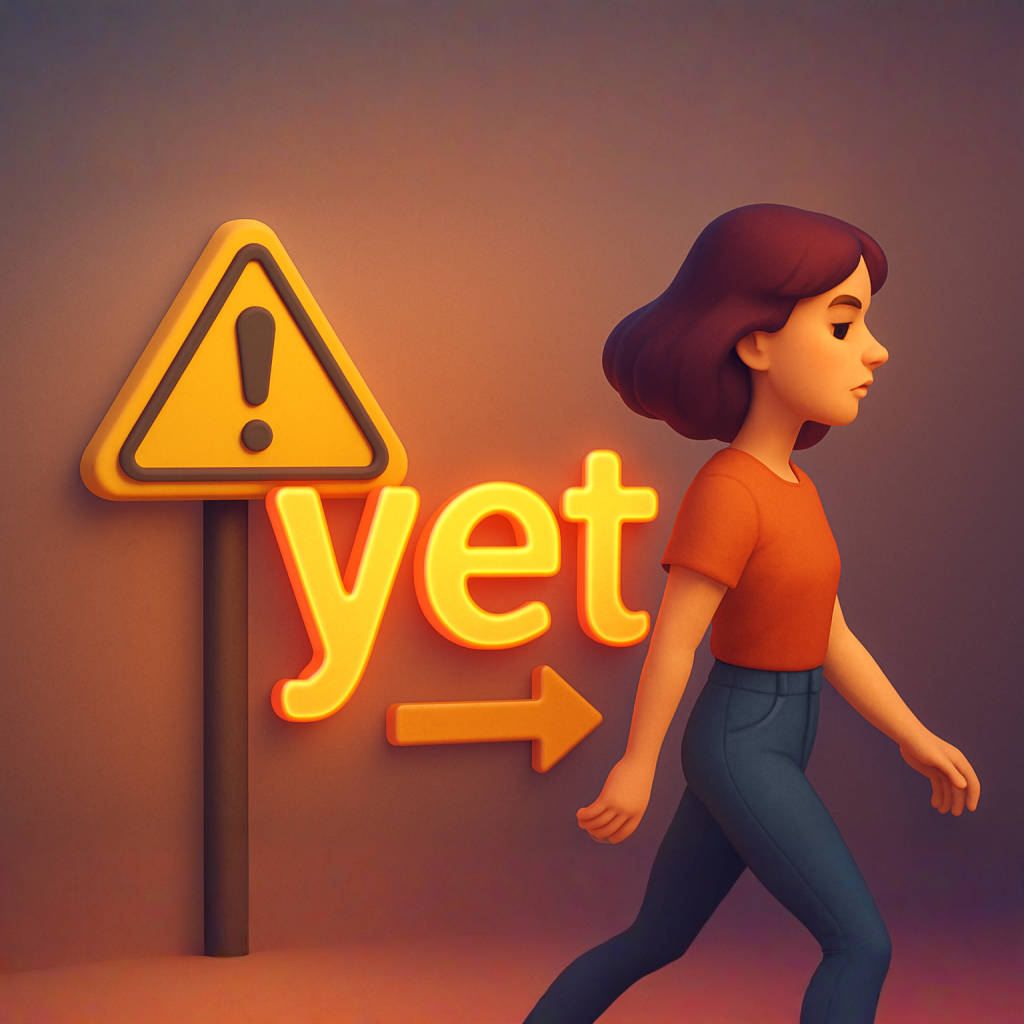Yet
Definition
Yet is an adverb and a conjunction. As an adverb, it is used to refer to something that has not happened as of a certain time, but is expected to happen. As a conjunction, it introduces a contrasting idea or emphasizes a situation contrary to expectations.
Parts of Speech
- Adverb
- Conjunction
Pronunciation
American English
- IPA Pronunciation: /jɛt/
- Respelling: YET
British English
- IPA Pronunciation: /jɛt/
- Respelling: YET
Etymology
The word "yet" originates from Old English "ġēate," meaning "still" or "until now." It is related to Proto-Germanic "*jata," meaning "already" or "still," and has evolved to indicate time, condition, and contrast in Modern English.
Derivatives
- Not-yet (noun/adjective, informal)
- Yet-to-be (adjective)
- Yet-again (adverb)
- Yet-unknown (adjective)
- None
Synonyms
- Still
- Nevertheless
- However
Antonyms
- Already
- Now
- None
Usage
The word "yet" is commonly used to describe situations that have not occurred but may happen: "The package has not arrived yet." It is also used to introduce contrast: "He was tired, yet he continued working."
Related Terms
- Still: Refers to an ongoing state or condition.
- Nevertheless: Expresses contrast despite a preceding statement.
- However: Indicates a contrasting or opposing idea.
Detailed Definitions
Adverb
- Refers to something that has not occurred as of a certain time: Indicates an expectation or potential occurrence in the future.
- Example: "The results are not available yet."
- Even or still: Refers to an ongoing or continuous state.
- Example: "There is yet more to discover."
Conjunction
- Used to introduce a contrasting idea: Refers to a situation that is unexpected given the preceding context.
- Example: "She was warned, yet she ignored the advice."
- To emphasize something surprising or noteworthy: Highlights an unexpected continuation or condition.
- Example: "It was raining, yet they went hiking."
yet



🇨🇳 Mandarin Chinese
- 还 (yet, still)
- IPA: /xaɪ̯˥˩/
- English Respell: hái
- 尚 (yet, still, more formal)
- IPA: /ʂaŋ˨˩˦/
- English Respell: shàng
🇮🇳 Hindi
- अब तक (yet, till now)
- IPA: /əb t̪ək/
- English Respell: ab tak
- फिर भी (yet, even then)
- IPA: /phɪr bʱiː/
- English Respell: phir bhi
🇪🇸 Spanish
- Todavía (yet, still)
- IPA: /todaˈβi.a/
- English Respell: todavía
- Aún (yet, still)
- IPA: /aˈun/
- English Respell: aún
🇫🇷 French
- Encore (yet, still)
- IPA: /ɑ̃ˈkɔʁ/
- English Respell: encore
- Toujours (yet, still, always)
- IPA: /tu.ʒuʁ/
- English Respell: toujours
🇦🇪 Arabic (Modern Standard)
- بعد (yet, after)
- IPA: /baʕd/
- English Respell: ba'd
- ما زال (still, yet)
- IPA: /maː zaːl/
- English Respell: ma zāl
🇧🇩 Bengali
- এখনো (yet, still)
- IPA: /e.khono/
- English Respell: ekhono
- তবুও (yet, still, nevertheless)
- IPA: /t̪obuo/
- English Respell: tobuo
🇷🇺 Russian
- Ещё (yet, still)
- IPA: /jɪˈɕːɵ/
- English Respell: yeshchyo
- Пока (yet, while, until)
- IPA: /pɐˈka/
- English Respell: poka
🇵🇹 Portuguese
- Ainda (yet, still)
- IPA: /ɐ̃j̃ˈdɐ/
- English Respell: ainda
- Já (yet, already)
- IPA: /ʒɐ/
- English Respell: já
🇮🇩 Indonesian
- Belum (yet, not yet)
- IPA: /bə'lum/
- English Respell: belum
- Masih (yet, still)
- IPA: /ma'sih/
- English Respell: masih
🇩🇪 German
- Noch (yet, still)
- IPA: /nɔχ/
- English Respell: noch
- Bis jetzt (until now, yet)
- IPA: /bɪs 'jɛt͡st/
- English Respell: bis jetzt
🇯🇵 Japanese
- まだ (yet, still)
- IPA: /ma.da/
- English Respell: mada
- これまで (until now, yet)
- IPA: /koɾe̞ma̠de̞/
- English Respell: kore made
🇻🇳 Vietnamese
- Chưa (yet, not yet)
- IPA: /cɨə˧/
- English Respell: chưa
- Vẫn còn (yet, still)
- IPA: /vəːn˧ˀ˨ʔ kɔn˧ˀ˨ʔ/
- English Respell: vẫn còn
🇰🇷 Korean
- 아직 (yet, still)
- IPA: /a.d͡ʑik̚/
- English Respell: ajik
- 여전히 (yet, still)
- IPA: /jʌ.dʑʌn.hi/
- English Respell: yeojeonhi
🇹🇷 Turkish
- Hala (yet, still)
- IPA: /hala/
- English Respell: hala
- Henüz (yet, just now)
- IPA: /heˈnyz/
- English Respell: henüz
🇵🇰 Urdu
- ابھی (yet, now)
- IPA: /əbʱiː/
- English Respell: abhi
- فی الحال (yet, currently)
- IPA: /fe alhaal/
- English Respell: fi alhaal





